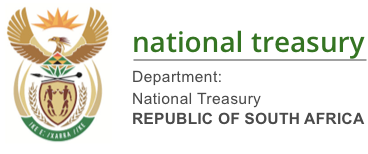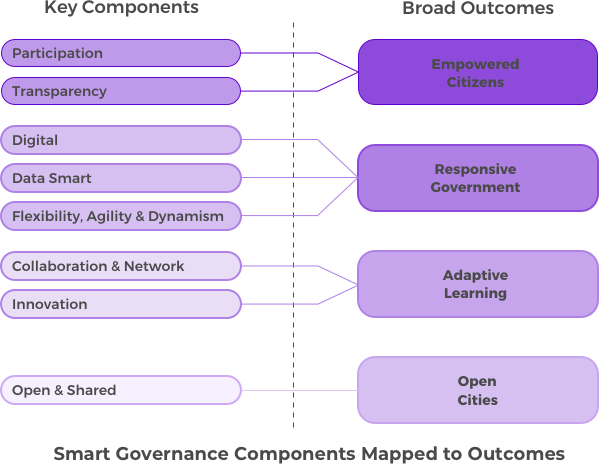Themes Overview
The work of the InTAcT project is based on three thematic work areas – Integrity, Social
Accountability
and Smart Governance.
While each theme is distinguishable from the others, the project is geared towards a single,
integrated,
but multi-faceted, framework and methodology to support integrity, social accountability and
transparency in cities.
A series of innovative tools and other resources have been produced in each thematic area to assist
cities to strengthen integrity, social accountability and transparency. These ‘Innovation Resource
Boxes’ consist of case studies, good practice briefs, guidelines and toolkits specific to each
theme.
In addition, all these innovative resources as well as the frameworks and other learning products
developed by InTAcT can be found in the InTAcT Knowledge Repository. So whether you’re looking for
specific types of products such as case studies, or all products related to a particular place, or
perhaps products related to specific topic - please visit the easily searchable InTAcT Knowledge
Repository which hosts a growing body of knowledge to enhance good governance cities.
Integrity
The Integrity theme has a strong emphasis on the internal mechanisms, policies and practices
that a
city can utilize to strengthen governance. It focuses on how cities can build integrity
management
systems, stronger ethical cultures and effective integrity oversight.
The InTAcT project has developed several resources and tools to assist cities in this
regard,
including an Integrity and Social Accountability City Assessment Tool. For more information
on
Integrity or the resources and tools developed….
Social Accountability
The Social Accountability theme focuses on the city relationships with external stakeholders
and
citizens, and how these external stakeholders should be engaged to strengthen
accountability,
integrity and transparency. It approaches accountability through an emphasis on citizen
engagement
and public participation.
The InTAcT project has developed several resources and tools to assist cities in this
regard,
including an Integrity and Social Accountability City Assessment Tool. For more information
on
Social Accountability or the resources and tools developed…
Smart Governance
The Smart Governance theme explores how technology and innovation can support efforts to
improve
governance, and strengthen accountability, integrity and transparency.
The InTAcT project has developed several resources and tools to assist cities in this
regard,
including Guidelines for Mayors and City Managers and an Open Data ‘Starter Kit’. For more
information on Smart Governance or the resources and tools developed….
Integrity
The Integrity theme has a strong emphasis on the internal mechanisms, policies and
practices
that a
city can utilize to strengthen governance. It focuses on how cities can build integrity
management
systems, stronger ethical cultures and effective integrity oversight.
The InTAcT project has developed several resources and tools to assist cities in this
regard,
including an Integrity and Social Accountability City Assessment Tool. For more
information on
Integrity or the resources and tools developed….
Social Accountability
The Social Accountability theme focuses on the city relationships with external
stakeholders and
citizens, and how these external stakeholders should be engaged to strengthen
accountability,
integrity and transparency. It approaches accountability through an emphasis on citizen
engagement
and public participation.
The InTAcT project has developed several resources and tools to assist cities in this
regard,
including an Integrity and Social Accountability City Assessment Tool. For more
information on
Social Accountability or the resources and tools developed…
Smart Governance
The Smart Governance theme explores how technology and innovation can support efforts to
improve
governance, and strengthen accountability, integrity and transparency.
The InTAcT project has developed several resources and tools to assist cities in this
regard,
including Guidelines for Mayors and City Managers and an Open Data ‘Starter Kit’. For
more
information on Smart Governance or the resources and tools developed….







Social Accountability
Social accountability is essentially concerned with the relationship between public representatives (for the purpose of this project, city government) and citizens, in their capacity as users of public services and infrastructure; as urban residents affected by local realities, how their city is governed and how it develops; and as political actors. As such, this work stream approaches social accountability through an emphasis on citizen engagement and public participation.
Enhanced social accountability and civic engagement can contribute to more locally appropriate, effective and sustainable development intervention and to more informed, engaged and responsive city institutions – which in turn will result in improved spatial outcomes.
The Social Accountability theme is focused on assisting metropolitan municipalities in designing, implementing, enabling and monitoring appropriate practices, structures and methodologies to improve the relationship between city government and urban residents (and their organisations) and embed social accountability.
A framework for assessing Social Accountability performance has been developed, and is applied in the City Self-Assessment Tool, developed by InTAcT. The diagram below captures the key criteria and desired outcomes for Social Accountability. Note that the examples provided of how to assess the outcomes are illustrative, rather than conclusive.
Good Practice Briefs
The good practice brief is 2-4 page description of a city good practice (either in a South African city or international) that seeks to improve social accountability practice in regard to infrastructure and land development governance and decision-making (particularly priorisation, procurement, permissions and performance).
There are currently 8 Social Accountability Good Practice Briefs available:
CoST Procurement Monitoring (Ethiopia)
Social audits for procurement monitoring (Ekurhuleni)
Citizen prioritisation and monitoring in the IDP (Umsobomvu Local Municipality, South Africa)
Participatory budgeting (La Plata, Pune and Paris)
Community scorecard (Cape Town)
Neighbourhood planning initiative (San Jose)
Open data portals and City planning (Los Angeles and Toronto)
Planning Concordat (Edinburgh)
Practice Notes (Integrity & Social Accountability)
A Practice Note is a set of guidelines developed in conversation with experienced city practitioners that address complex but critical integrity and social accountability issues related to in infrastructure and land development decision-making.
3 Integrity & Social Accountability Practice Notes will be made available in the coming weeks
Prioritisation and Performance
Permissions
Procurement
City Assessments
A City Self-Assessment Tool has been developed which utilizes the criteria developed in the Integrity and Social Accountability thematic areas as the basis of its assessment framework. In addition the framework, a detailed methodology and a range of tools including a city guidelines document, a questionnaire and a perception survey have been developed.
http://intact.org.za/cityassessmentsCity Self-Assessments are a core component of the InTAcT project, and all South African Cities are encouraged to participate. The assessment approach is rooted in peer learning and appreciative enquiry. Cities benefit from a facilitated opportunity for reflection on their performance that identifies both areas of good practice and areas for improvement.
Explore the City Assessment methodology or view the outcomes of City Assessments recently conducted on our site at:
Links Gallery
In this section, a series of interesting and innovative Integrity-related tools have been reviewed and profiled for ease of use. A snapshot of each tool is provided in this gallery - containing a brief description, what it can be used for, who owns/maintains it, a link to the full product as well as an image of the tool.
Links Gallery